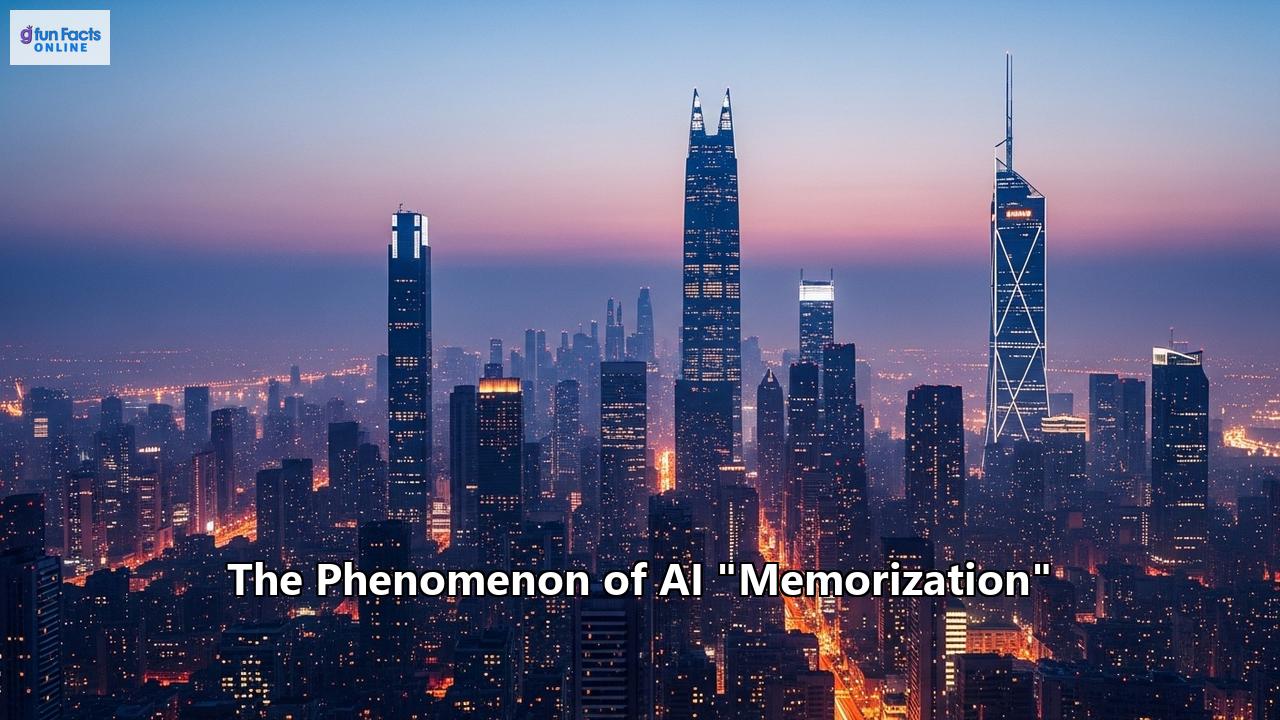An exploration of AI's ability to recall information reveals a complex and crucial aspect of machine learning. This phenomenon, known as AI memorization, refers to an artificial intelligence system's capacity to store, retrieve, and use information from its training data. This capability is fundamental to how AI learns and performs, enabling it to provide responses that are contextually relevant and accurate.
Just as humans rely on memory to learn and navigate the world, AI systems leverage memorization to enhance their performance. This can range from short-term memory for immediate tasks and conversations to long-term memory for recalling past interactions and user preferences. However, the way AI models "remember" is quite different from human memory. Recent research from major tech firms like Meta, Google, and Nvidia has shown that AI models don't store information as complete words or sentences. Instead, they break down information into tiny fragments, with each "parameter" or brain-like cell holding a small piece of the puzzle. A single concept, like the word "moon," would be distributed across thousands or even millions of these parameters. When prompted, the AI reconstructs the information from these scattered patterns.
The Double-Edged Sword of Memorization
The ability of AI to memorize is not inherently good or bad; its impact depends on what is being memorized and to what extent.
The Good Side of Memorization
In many scenarios, memorization is a desirable trait for AI. For instance, we want large language models (LLMs) to remember factual information to avoid generating plausible-sounding but incorrect "hallucinations." Factual memorization allows an LLM to function as a reliable knowledge base. Some researchers even argue that certain forms of memorization are necessary for a model to generalize and learn effectively, drawing a parallel to how humans need to memorize information to build a foundation for deeper understanding.
The Dark Side: Unintended Consequences
However, AI memorization also presents significant risks and challenges. When an AI model memorizes and reproduces verbatim fragments of its training data, it can lead to serious issues.
One of the most significant concerns is the risk to privacy. If an AI model is trained on data containing personally identifiable information (PII), it may inadvertently leak this sensitive data in its responses. Researchers have successfully extracted private information, such as contact details, from commercial AI systems.
Another major issue is copyright infringement. Several high-profile legal challenges have emerged, with entities like The New York Times suing AI companies for copyright infringement, demonstrating that models like ChatGPT can reproduce verbatim copies of their articles. This raises complex legal questions about whether the models themselves, by storing this memorized data, constitute infringing copies.
Furthermore, excessive memorization can be detrimental to a model's performance. It's akin to a student who crams for an exam by memorizing answers without understanding the underlying concepts. This can lead to a failure to generalize to new, unseen data, a phenomenon closely related to the classic machine learning problem of overfitting.
How and Why Does Memorization Happen?
Several factors influence the extent to which an AI model memorizes its training data:
- Data Repetition: The more frequently a piece of data appears in the training set, the more likely it is to be memorized. This is why AI models can easily recall famous quotes or song lyrics.
- Model Size: Larger language models have a greater capacity for memorization and tend to memorize data faster than smaller models. Surprisingly, larger models can memorize a significant portion of their training data before they begin to overfit.
- Unique Identifiers: Research has shown that models tend to memorize nouns and numbers first, as these can act as unique identifiers for specific training examples.
Taming the Beast: Detecting and Mitigating Memorization
The AI research community is actively working on ways to understand, detect, and control memorization.
- Deduplication: One effective technique is to find and remove duplicate data from the training set, which has been shown to reduce the risk of memorization. Tools have been developed and open-sourced to help with this process on a large scale.
- Differential Privacy: Before the rise of large transformer models, differential privacy was a popular technique to prevent memorization by adding statistical "noise" to the data.
- Inference-Time Interventions: Researchers are also exploring methods to prevent verbatim memorization at the point of generating a response, though these can sometimes be subverted.
- Predicting Memorization: A novel area of research focuses on predicting which data sequences are likely to be memorized even before a large model is fully trained, by observing the behavior of smaller models.
The Future of AI and Memory
The phenomenon of AI memorization is a central topic in the ongoing development of artificial intelligence. It touches upon critical issues of privacy, copyright, and the very nature of machine learning. As AI models become increasingly integrated into our lives, the ability to control what they remember and forget will be paramount. The goal is to strike the right balance, fostering beneficial learning while preventing the harmful regurgitation of sensitive or copyrighted information. This ongoing research will not only shape the future of AI technology but also the legal and ethical frameworks that govern it.
Reference:
- https://techsee.com/glossary/ai-memory/
- https://copyrightblog.kluweriplaw.com/2024/03/26/memorisation-in-generative-models-and-eu-copyright-law-an-interdisciplinary-view/
- https://www.ucl.ac.uk/news/2024/jan/generative-ai-helps-explain-human-memory-and-imagination
- https://dev.to/gervaisamoah/understanding-chatgpts-memory-how-ai-remembers-and-forgets-54f8
- https://cybernews.com/ai-news/ai-research-meta-google-nvidia/
- https://openreview.net/pdf?id=Iq0DvhB4Kf
- https://www.tonic.ai/guides/understanding-model-memorization-in-machine-learning
- https://sites.google.com/view/memorization-workshop/home
- https://ojs.aaai.org/index.php/AAAI/article/view/29948/31657
- https://probablyprivate.com/issue/how-does-ai-memorization-happen-and-what-we-should-do-about-it/
- https://www.reddit.com/r/aiwars/comments/1cb7do3/paper_the_files_are_in_the_computer_copyright/
- https://proceedings.neurips.cc/paper_files/paper/2022/file/fa0509f4dab6807e2cb465715bf2d249-Paper-Conference.pdf
- https://openreview.net/forum?id=Iq0DvhB4Kf

